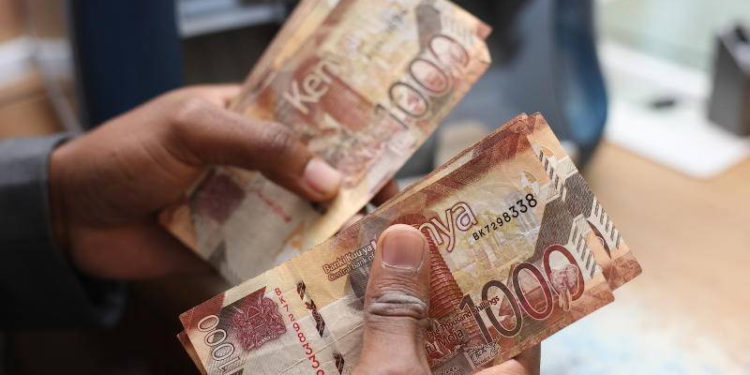As of June 13 2024, the Kenyan shilling has experienced notable appreciation, strengthening to 128.5 against the US dollar, up from 131.2 recorded on May 13 2024. The primary driver behind the shilling’s strengthening is Kenya’s strategic repayment of the remaining $500 million installment this month out of the $2 billion Eurobond maturing in June 2024. This payment was facilitated by a significant loan from the World Bank, which provided $1.2 billion in budget support to Kenya as stated by Central Bank of Kenya (CBK) Governor Thugge.
In February 2024, Kenya raised $1.5 billion through an international bond issuance. The primary objective was to fund the buyback of a considerable portion of the $2 billion Eurobond. Despite the high cost associated with this new bond, the proactive approach by Kenyan authorities has significantly reduced the immediate debt burden. Prior to these financial maneuvers, investors harbored apprehensions regarding Kenya’s capacity to honor its debt commitments, given the nation’s strained public finances, which ultimately led to the shilling collapsing in 2023. However, the recent Eurobond payment has dispelled these fears, fostering a more optimistic outlook among investors and consequently strengthening the shilling.
Despite challenges such as not meeting revenue targets and woes with increasing taxes, the Central Bank remains optimistic about Kenya’s economic performance during 2024. The Central Bank has retained its economic growth forecast at 5.7% for the year, citing robust performance in the services sector and resilience in agriculture. This follows an estimated growth rate of 5.8% in the first quarter of the year, building on the 5.6% growth achieved in 2023.
To ensure economic stability, the Central Bank during the Monetary Policy Committee meeting held last week maintained its benchmark lending rate at 13.0%. This policy stance is aimed at keeping inflation stable around the mid-point of the bank’s target range in the near term. While external economic developments are being closely monitored, any adjustments to the benchmark rate will be considered based on prevailing conditions.
The current strengthening of the Kenyan shilling is a direct consequence of prudent financial management and strategic debt repayment. With a stronger currency, the cost of servicing foreign-denominated debt decreases. This will free up government resources for other critical expenditures, such as recurrent expenditure and running the economy. Coming from fears of debt default by Kenya in 2023, the infusion of World Bank funds in 2024 has not only alleviated immediate debt pressures but also restored investor confidence, positioning Kenya on a path of sustained economic growth and stability.












